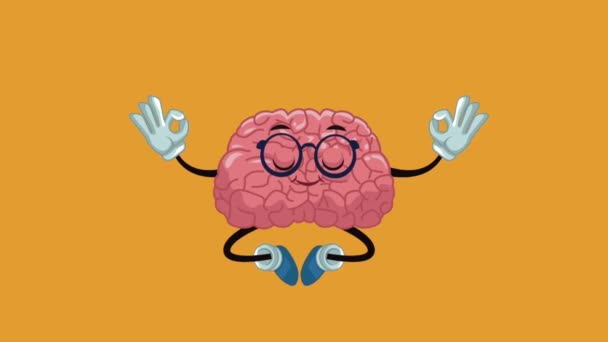Emotional Intelligence,
Psychological Capital and Leadership
Hiiii how’s it
going?
in today’s post I’m gonna give you guys a summary about Emotional
intelligence, psychological capital and leadership. Hope this helps!
Emotional Intelligence

According to Dr Goleman, ’emotional intelligence is defined
as a set of skills or competencies, which provide human resource professionals,
managers, and anyone in the world of work, with a comprehensive tool to
define, measure and develop emotional skills’. Emotional intelligence can also
be defined as the capacity to recognize our own feelings and those of others
for motivating ourselves and managing emotions well in our social interactions.
For most people, emotional intelligence (EQ) is more
important than one’s intelligence (IQ) in attaining success in their lives and
careers. As individuals our success and the success of the profession today
depend on our ability to read other people’s signals and react appropriately to
them.
Therefore, each one of us must develop the mature emotional
intelligence skills required to better understand, empathize and negotiate with
other people — particularly as the economy has become more global. Otherwise,
success will elude us in our lives and careers.
“Your EQ is the level of your ability to understand other
people, what motivates them and how to work cooperatively with them,” says
Howard Gardner, the influential Harvard theorist. Five major categories of
emotional intelligence skills are recognized by researchers in this area.
Emotional intelligence is a concept researchers came up with
in the 1980s and 90s to explain why intelligent people like Lisa often do
really, really stupid things. The argument went that the same way your general
intelligence (IQ) is a measurement of your ability to
process information and come to sound decisions, your emotional
intelligence (EQ) is your ability to process emotions—both others’ and
your own—and come to sound decisions.
Some people have an incredibly high IQ but low EQ—think your
nutty professor who can’t match his socks or doesn’t see the purpose in
showering. Other people have incredibly high EQ but low IQ—think the street
hustler who can’t even spell his own name but somehow talks you into giving him
the shirt off your back.
Psychologists who study emotional intelligence sometimes
claim that it is actually more important than general intelligence.1 This
statement is controversial at best, and a big bag o’ “what the fck?” at worst.
For one, measuring emotional intelligence is difficult, if not impossible. Most
of this stuff is subjective.
But also because emotional intelligence isn’t as stable as
general intelligence is. IQ is harder to change. But EQ is something you can
work on and develop like a muscle or a skill and watch grow, like a dainty
flower in your stupid ass garden.
So, basically, no matter how smart you are, you have no
excuse. Get your sht together. Developing emotional intelligence comes down to
not being a fcknut like Lisa was.
Psychological
Capital

The foundations of PsyCap lie in positive organizational
behaviour or POB (Luthans, 2003; Luthans and Youssef, 2004; Youssef and
Luthans, 2007). Drawing from POB, Luthans et al. (2007) define PsyCap as the
“individual’s positive psychological state of development and is characterized
by: (1) having confidence (self-efficacy) to take on and put in the necessary
effort to succeed at challenging tasks; (2) making a positive attribution
(optimism) about succeeding now and in the future; (3) persevering toward goals
and, when necessary, redirecting paths to goals (hope) in order to succeed; and
(4) when beset by problems and adversity, sustaining and bouncing back and even
beyond (resiliency) to attain success” (p. 3). Thus, PsyCap has four main
components that are self-efficacy, optimism, hope, and resiliency. Luthans et
al. (2007a) argue that for any positive psychological capacity to become a part
of the PsyCap, the following criteria must be met:
1. It should be positive and relatively unique to the field
of organizational behavior
2. It should fulfil the scientific criteria of being theory-
and research-based (that means it should have substantial theoretical and
research background)
3. It should be measurable (with the help of some tool such
as a questionnaire)
4. It should be state-like (that means the capacity is not
hard-wired—or trait-like—or static in nature) and therefore can be developed
with certain interventions.
5. It should be related to work performance outcomes (it
should have some positive influence on sustainable work performance)
Leadership

What is leadership? Each of us believe we have a good idea
about what it means to be a good leader, but when it comes to defining the
concept, the picture is not so clear. For some, leadership is motivation, for
others, it equals results and it can also represent inspiration.
This leadership definition captures the essentials of being
able to inspire others and being prepared to do so. Effective leadership is
based upon ideas (whether original or borrowed), but won't happen unless those
ideas can be communicated to others in a way that engages them enough to act as
the leader wants them to act.
Put even more simply, the leader is the inspiration and
director of the action. He or she is the person in the group that possesses the
combination of personality and leadership skills that makes others want to
follow his or her direction.
Leaders shape our nation,
communities, and organizations.
We need good leaders to help guide us and
make the essential large-scale decisions that keep the world moving.
Our society is usually quick to identify
a bad leader, but how to identify a good one? What would most people say
makes a good leader?
The Characteristics of a
Good Leader
Based on Center for Creative Leadership
research, they’ve found that great leaders consistently possess these 10 core
leadership traits:
·
Honesty
·
Ability to
delegate
·
Communication
·
Sense of
humor
·
Confidence
·
Commitment
·
Positive
attitude
·
Creativity
·
Ability to
inspire
·
Intuition
While many powerful and successful leaders
haven’t exhibited all of these character traits, and the definition of a good
leader can be quite ambiguous, most good leaders do leverage at least some of
these characteristics.
This research has also found that other
important qualities of a good leader include:
·
Courage
·
Caring
·
Optimism
·
Self-control
·
Communication
Courage: There are two kinds of courage:
physical and moral. Leadership character requires moral courage. This means
standing up for one’s convictions and values while risking criticism, censure
or ridicule. It can also mean risking loss of power, position, or reputation.
Moral courage inspires respect for several reasons: it is viewed as being a
selfless form of behavior; it is seen as a sign of having overcome fear; and it
implies that leaders take responsibility for their own actions.
Caring: Caring means showing sincere interest
in and genuine concern for others. It includes consideration, compassion,
empathy, sympathy, and nurturing. Caring does not mean tolerating or ignoring
shoddy performance, violations of company policies, bad attitudes, or
dishonesty. What it does mean is seeing humans as the most important resource
in an organization – and the resource with the most overall potential. Leaders
who are caring will likely be rewarded with cooperative and supportive behavior
in return.
Optimism: This is the tendency to take the most
hopeful and cheerful view and to expect the best outcome. Optimists see
opportunities, possibilities and silver linings in every situation. They often
contend that, with hard work, focus, resilience and a bit of luck, a positive
outcome is possible. People are naturally drawn to leaders who are positive,
upbeat and cheerful – who have a “We can do this!” type of attitude.
Self-control: Leaders must choose what they will do
and not do and then accept the consequences of their choices. This includes
personal discipline in behaviors and lifestyle. Self-control implies that as a
leader you have sufficient drive and initiative, as well as a clear vision and
focus. Self-control keeps a person motivated and focused on goals, and it also
contributes to momentum.
Communication: There are, of course, several methods
of interpersonal communication – written, verbal, and nonverbal signs,
attitudes and body language, as well as communication through actions and
appearance. Listening is also an important part of communication. A leader’s
communication casts a vision, establishes direction, shapes goals and
objectives, reinforces key values and clarifies tasks. Communication makes the
emotional connection that is so critical in effective leadership.
References
Toor, S. R., & Ofori, G. (2008, November). Role of
psychological capital (PsyCap) in leadership effectiveness. In 13th
International Symposium" Transformation through Construction (pp.
15-17).
Luthans, F., Avey, J. B., Avolio, B. J., Norman, S. M. and
Combs, G. M. (2006b) Psychological capital development: Toward a
micro-intervention. Journal of Organizational Behaviour, 27, 387–393.
Luthans, F., Youssef, C. and Avolio, B. J. (2007a)
Psychological Capital: Developing the Human Capital Edge. Oxford, England:
Oxford University Press.
Luthans, F., Avolio, B.J., Avey, J.B., and Norman, S.M.
(2007b) Positive psychological capital: Measurement and relationship with
performance and satisfaction. Personnel Psychology, 60, 541-572.
Manson, M ( 2019, Apr 11). 5 skills to help you develop emotional intelligence. Retrieved from https://markmanson.net/emotional-intelligence
Comments
Post a Comment